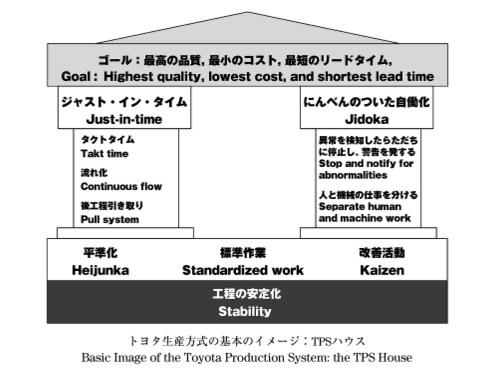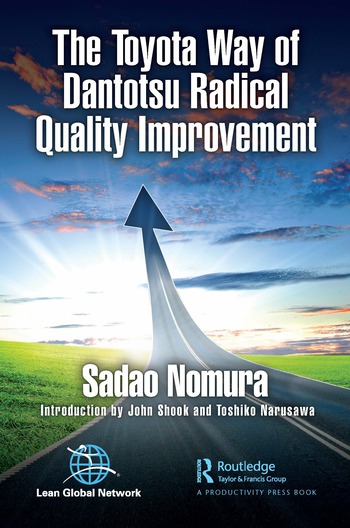Dear Gemba Coach,
How can I speed up my team’s lean learning?
There’s good news and there’s bad news. The good news is that you can speed up your team’s lean learning. The bad news is that your team’s learning reflects your own. The greatest impact on your team’s learning curve is your own modeling behavior, and the question is therefore: how can you speed up your own lean learning? I’ll assume that you’re not working with a sensei because the question would hardly arise if you did, and here there is indeed a real difficulty – learning on one’s own is hard.
It’s not that learning is hard in itself. Most people enjoy learning, and if you’re interested in lean in the first place, the odds are that you do as well. But, as grown ups, we enjoy learning useful things: We need to see the practical value of what we will learn before we make the effort (which is pretty sensible since we have to carefully triage amongst all the infinite demands on our attention).
We don’t give our kids that option. Sure, they could learn all they need on YouTube, but the reason we send them to school to learn mathematics or grammar is that we believe they need some foundational knowledge they would not pick up on their own because it’s, well, hard and boring to learn (which is also why good math or grammar teachers always strive to make their subject matter interesting).
How fast is your own lean learning? Left to our own devices, we choose what we want to learn according to the practical value we see in it for our immediate job. This is not learning, really, this is bringing back new ideas to what we already know. Any one that has worked with a coach in sports or arts has experienced the coach insisting on you working on some things that are both hard and apparently meaningless, because their use only appears after the skill is acquired, never before. Similarly, in lean learning is slow because if we’re allowed to pick and choose we’ll tackle the aspects of lean that we find useful to solve our immediate problems.
How to Freak Out a Logistics Manager
Let’s do a quick mental gemba. Can you turn around and look at the lean books on your shelf? Our best sellers are Learning To See, Managing To Learn, and Getting The Right Things Done. These are excellent lean books. Indeed, one can argue that lean is about (1) accelerating the flow of value (as taught in Learning To See), and (2) developing people’s competence to solve the resulting problems thus accelerating the flow of work and ideas (as taught in Managing To Learn), and (3) giving clear direction to align all efforts (as taught in Getting The Right Things Done) – no argument there.
But they’re also the lean books that best fit existing business conditions. It’s easy to see how accelerating the flow of one key product through a broken supply chain makes common sense, just as learning to better manage one’s subordinates by focusing on learning, or to give greater meaning to cascading objectives: the ideas and techniques in these three seminal books fit relatively easily within the existing context of mainstream business.
Do you also have on your shelves Creating Level Pull, Birth Of Lean, and Kaizen Express? These equally great books sell rather less well because they describe things much further away from the way most businesses are run. Creating Level Pull is not about improving one process, but understanding Toyota’s breakthrough innovation of using logistics to increase product mix on the same resources and use pull precision to improve productivity – revolutionary (just show it to a logistics manager and watch them freak out).
Birth Of Lean, which describes the original intent behind the development of the TPS, is one of the very rare books that explains the interplay between quality and flow improvement and has unique interviews of the geniuses who cooked up the whole lean thing, Eiji Toyoda and Taiichi Ohno.
Kaizen Express is a fabulous textbook that explains the deep lean grammar. Kaizen Express remains, to me, the ultimate test of my understanding of lean. I regularly go back to it and ask myself: do I get this in practice? Can I think of examples where I’ve done this? Lately, I was asking myself when was the last time I had integrated a batch process into a cell by redesigning the machine using jidoka – well, not that recently (a wake-up call not to forget what made lean “lean” back in the early ‘90s). Kaizen Express holds the one referenced TPS house that describes the learning system in technical terms.

Assimilation vs. Accommodation
Some lean books make intuitive sense, and will help you solve problems right away in your job, others don’t make any intuitive sense, are hard to read, but are the key to insight and lean transformation. In a technical learning sense, this is the difference between assimilation (bringing back new information to your current understanding – without changing that understanding) as opposed to accommodation (using new facts to change your own understanding). If your mind were a database (which, thankfully, it most emphatically is not), assimilation is like adding a new information in an existing field – easy – whereas accommodation is creating a new field to put the data in – hard.
Accommodation is really, really hard as our understanding tends to be connected and consistent. When you start changing one field, you also have to change the connections to all the other fields, and soon you’ll find that your categories, labels, and mental images no longer fit. In the end, you’ll end up questioning your own deepest metaphors, which means letting go of your mental anchors, but is really, really hard.
For instance, I’ve observed it takes years and years of lean thinking to abandon the mechanical deep metaphor of organizations (lets’ build a network of interconnected boxes and stuff people in them) for the organic metaphor of lean (let’s grow trees and see how they intermesh). Without a coach to push us, quite naturally, we pick up “new” learning that is easy to assimilate and steer clear of awkward, unfamiliar stuff that would force us to accommodate. New is in fact not so new, or, to be exact, we take the “new” out of the new. Learning To See, Managing To Learn, and Getting The Right Things Done do make revolutionary points, but without reading the other harder books, these points are easy to miss or dismiss in favor of easier, mainstream interpretation.
The Power of Kaizen Is Infinite
To your question: The only way I know to speed up your team’s lean learning is to speed up your own. This either means access to a sensei (count the degrees of separation with Taiichi Ohno) or doing the hard work on your own, which means committing to understand the unfamiliar aspects of lean thinking, not the obvious ones. Yes, this is harder, but it is also both more fun and more rewarding. There’s not a dull day, and the scope of performance improvement we can achieve increases with each new insight as opposed to get smaller and smaller as we’ve sucked an obvious ideas dry. As Jon Miller reminds us in translating a quote from Taiichi Ohno, we can discover for ourselves that the power of kaizen is infinite if we avoid complacency and practice daily.






